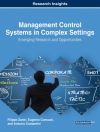This is the 6th edition of a book that has become a standard reference to Lean principles, systems, and tools. It is used by Lean practitioners and Industrial Engineers in the UK, USA, Ireland, Scandinavia, South Africa, and Australia. Like earlier editions, the book is written in plain language, with minimal padding, especially for busy practitioners and managers at all levels.
Previous editions have sold over 130, 000 copies, and adapted versions have been translated into Danish, Chinese and German. Across its editions, the Lean Toolbox has been prescribed reading at several UK, US, Irish and South African universities, and has featured as a standard reference for the APICS / ASCM professional CPIM examination.
This edition marks once again a significant update. New sections now cover digital tools and how these can support lean transformations, how to respond to complexity and uncertainty in the world firms operate in, and the importance of psychological safety in making sustainable improvements. Significant further revisions reflect advances in scheduling, demand management, problem solving, layout, and in many fundamental topics.
Apart from updates in many sections, this new (Sixth) edition has new (or substantially revised) sections on Digital Lean, Process mining, Bottlenecks and floating bottlenecks, Demand management and demand categories, A Scheduling framework, Psychological safety, Environmental sustainability, The Job Characteristics Model, A TPM Maintenance framework, Scrum and Agile, Seru Cells, OODA vs PDSA, and Engagement
Jadual kandungan
Main Sections: Philosophy, Mindset and the Science of Lean; Organising for Flow; Preparing for Flow; Creating Flow; Improving Flow; Designing for Flow; Motivating and Measuring for Flow; Digital Tools for Flow; A Lean Chronology.
Mengenai Pengarang
Matthias Holweg is the American Standard Companies Professor of Operations Management at Saïd Business School, University of Oxford. Originally trained as an industrial engineer, he has done extensive research into the adoption of Lean in the automotive industry. His recent work investigates the use of digital tools such as artificial intelligence and additive manufacturing in support of process improvements in manufacturing and service settings.












